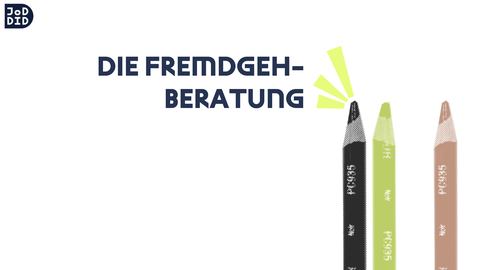Mar 25, 2021
#09 The "Fremdgehberatung": Between spontaneous green Merkel infatuation and homeless CDU members
It began with the SPD and the sharp drop in approval ratings after the brief wave of enthusiasm for Martin Schulz and has not ended with the covid pandemic and the government's approach, which has been repeatedly praised or harshly criticized from a wide variety of quarters: the long-standing success of the so-called people's parties, which enjoyed broad support among large sections of the population, seems to have been lost for good.
The fact that this is triggering an enormous process of change, particularly for the SPD and CDU parties, and is also significantly altering the forms of government formation and representative democracy in Germany, is the subject of much discussion and media coverage.
But what does this actually mean for voters? A political decision that was previously perhaps personally uncontroversial and possibly also traditionally easy no longer seems suitable for many citizens in times like these. A decision to vote in the 2021 federal election may therefore seem much more difficult and complex than ever before. Especially during a global pandemic, when so many fundamental and previously taken-for-granted beliefs, values, orientations and decisions need to be re-evaluated - both socially and personally - is a political reorientation supposed to take place?
We ourselves feel and believe that support services are needed for such a reorientation process. Political education should not only address central questions such as what the various political parties still stand for, who brings what skills to the table and how social crisis situations are dealt with or economic and socio-political aspects are represented, but should also consciously give space to a possible feeling: the self-conscious feeling of abandoning a political party or orientation after possibly having perceived that party as a safe political haven and identity-forming point of orientation for years.
Political education can support people here and consequently pick them up in this space, which is often considered impossible to decide, and thus avoid the increase in the number of non-voters, as well as offer citizens meaningful and necessary offers for political orientation in times of crisis in the context of the elections.

